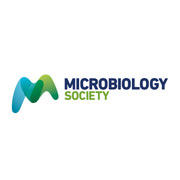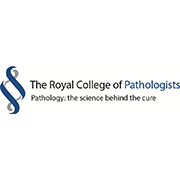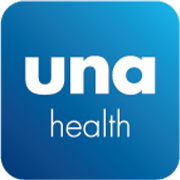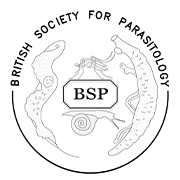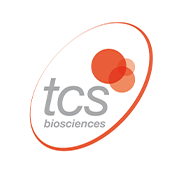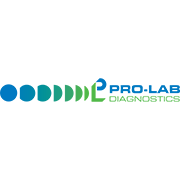Cryptosporidium is a very common cause of gastroenteritis in the UK and one of the most important contributors to the burden of childhood diarrhoea morbidity and mortality globally. It is an organism of interest to those working in clinical, industrial, veterinary and agricultural settings and recent outbreaks have highlighted the lack of awareness of current guidance around Cryptosporidium. This one-and-a-half-day meeting will bring these strands together and feature a varied programme of renowned invited speakers and offered paper presenters, showcasing the latest research.
The audience will have the opportunity to hear about advances in the field, share good practice, and establish collaborations with others, across science, industry, public and environmental health and clinical and veterinary practice.
This focused meeting is organised in collaboration with Swansea University Medical School and the England and Wales Cryptosporidium Reference Unit, Public Health Wales Microbiology Swansea.
Organising committee:
- Angharad Davies (Swansea University Medical School, UK)
- Rachel Chalmers (Public Health Wales, UK)
- Kristin Elwin (Public Health Wales, UK)
-
Guy Robinson (Public Health Wales, UK)
Key topics
- Clinical cryptosporidiosis
- Environmental health
- Public health
- Laboratory research
- Veterinary aspects of Cryptosporidium
Royal College of Pathologists Diamond Jubilee Lecture and Evening Session: Free entry
Professor Roberto La Ragione from the School of Veterinary Medicine, University of Surrey will be giving a guest lecture on ‘Zoonoses: A global one health issue’ to celebrate the Diamond Jubilee of the RCPath. The talk will be of interest to clinical microbiologists as well as veterinary microbiologists.
The Diamond Jubilee Lecture will be accompanied by a drinks reception and poster viewing session commencing at 17:30 on Monday 4 July. The evening session is free of charge for those who wish to attend, and registration is not required. If you would also like to join us for dinner following the lecture, please contact [email protected].
COVID-19 Mitigations
As part of the preparations for returning to delivering in-person events, Microbiology Society Council members and members of the Virus Division have worked with Society staff to develop a framework of mitigations for the Society to apply to all of its events throughout 2022, in order to ensure that these are as COVID-secure as possible.
Implementation of this framework is a shared responsibility; shared between the Society, the venues we use for our events, and all potential attendees. Attendance at any of our events is a personal choice, but it will be incumbent on all of us to deliver these mitigations in order for us to keep all delegates and staff as safe as we can.
The framework covers the following five areas.
The following mitigations will be implemented for all those attending a Focused Meeting in 2022. The Society staff will continue to consult with the organising committee in the lead up to the event and these mitigations will be kept under review and may be amended to ensure they remain appropriate as circumstances change.
Mitigation area
Vaccines
All attendees are required to be fully vaccinated with an approved vaccine against COVID-19 to attend a Focused Meeting in 2022. For many individuals, this will mean a primary course and booster vaccine, and with the booster administered at least 14 days before the meeting. However, if you do not meet this requirement or if you have any concerns around your vaccination status, please get in touch with us to discuss it further by emailing [email protected]
You can find further information on vaccines on the World Health Organization (WHO) COVID-19 vaccine advice page, which includes a list of vaccines that have been approved for use against COVID-19.
Ventilation
Best efforts will be made to promote the circulation of fresh air into each Focused Meeting venue. This will include use of air conditioning, if available at the meeting venue, or opening of doors and windows during appropriate intervals in the event programme if possible.
Masks
FFP3 masks will be provided to all individuals attending a Focused Meeting in 2022 and everyone will be expected to wear them inside the meeting venue, except when eating or drinking and except for those that have medical exemptions.
Testing
Attendees will be provided with LFT devices and are expected to test themselves daily before entering the meeting venue.
Spacing
All attendees are reminded to adhere to social distancing where possible, particularly during communal activities such as lunch and poster sessions.
Further information will be announced in the build up to the meeting on our social media channels and you can follow us on Twitter @MicrobioSoc using the hashtag #Cryptosporidium2022
Photo credit: BIOPHOTO ASSOCIATES / SCIENCE PHOTO LIBRARY
Monday 04 July, Afternoon
Session 2: Epidemiology and public health
-
Chair(s): Daniel Thomas (Public Health Wales, UK)
-
Invited speaker: National Cryptosporidium surveillance; changing trends in space and time, and new studies.
-
Invited speaker: Molecular diagnostics, detection and genotyping for public health
-
Invited speaker: The epiCrypt study: Household transmission of Cryptosporidium exerts a high burden of illness in the home environment, with C. hominis infections a key risk factor for spread
-
Offered paper: An unusual outbreak of cryptosporidiosis in a British military population in Kenya
-
Offered paper: Impact of the COVID-19 pandemic on the epidemiology of Cryptosporidium spp. in England and Wales
Session 3: Food, water, environment and health
-
Chair(s): Rachel Chalmers (Public Health Wales, UK)
-
Invited speaker: Infections linked to farms: improving the outbreak response
-
Invited speaker: Swimming pools - what's going wrong and how are we putting it right?
-
Offered paper: An exploration of the awareness of hygienic swimming behaviours and an evaluation of a public health intervention, to reduce the transmission of Cryptosporidium.
-
Where next for the UK?
Session 4: Evening session (Free entry)
-
Drinks reception and poster viewing. Sponsored by the British Society for Parasitology
-
Pre-dinner guest lecture to celebrate the Diamond Jubilee of the RCPath “Zoonoses: A global one health issue”, sponsored by the Royal College of Pathologists
-
Presentation of the poster prize, sponsored by the Journal of Medical Microbiology
Tuesday 05 July, Morning
Session 5: Clinical investigations
-
Chair(s): Adam Sateriale (The Francis Crick Institute)
-
Keynote speaker: Is Cryptosporidium a hijacker able to drive cancer cell proliferation?
-
Offered oral: Studies on the health sequelae of human Cryptosporidiosis
-
Offered paper: Genetic diversity of Cryptosporidium spp. in human and non-human primates (NHPs) in rural and urban areas of Ethiopia
-
Offered paper: Investigating genetic clusters of Cryptosporidium parvum to develop improved epidemiological understanding: Wales and North West England, March to June 2022
Session 6: Cryptosporidium and new approaches
-
Chair(s): Guy Robinson (Public Health Wales, UK)
-
Invited speaker: Adaptive introgression: ongoing evolution of an anthroponosis - or how Cryptosporidium grows to love us
-
Invited speaker: Lab tools to study Cryptosporidium transmission and advance drug discovery
-
Offered paper: Parapipe: a bioinformatic pipeline for analysing Cryptosporidium NGS data
-
Offered paper: CRISPR-based detection of Cryptosporidium at trace levels
Tuesday 05 July, Afternoon
Session 8: Animal/Veterinary break-throughs
-
Chair(s): Adrienne Macintosh (Animal and Plant Health Agency, UK)
-
Invited speaker: Are some Cryptosporidium parvum genotypes better adapted for calf infections/transmissions than others?
-
Offered paper: Prevalence of Cryptosporidium species in dairy cows’ farms across Europe
-
Offered paper: Do we see changes in the genetic diversity of Cryptosporidium parvum genotypes during the calving season within a dairy herd?
-
Offered paper: Detection and prevalence of Cryptosporidium spp. in wild deer in Scotland
-
Offered paper: Cryptosporidiosis in young calves in France: scientific and practical aspects
-
Questions and answers
Monday 04 July, Afternoon
-
Welcome
-
Keynote speaker: Challenges posed by Cryptosporidium in the 21st century and the changing face of clinical cryptosporidiosis
-
Invited speaker: National Cryptosporidium surveillance; changing trends in space and time, and new studies.
-
Invited speaker: Molecular diagnostics, detection and genotyping for public health
-
Invited speaker: The epiCrypt study: Household transmission of Cryptosporidium exerts a high burden of illness in the home environment, with C. hominis infections a key risk factor for spread
-
Offered paper: An unusual outbreak of cryptosporidiosis in a British military population in Kenya
-
Offered paper: Impact of the COVID-19 pandemic on the epidemiology of Cryptosporidium spp. in England and Wales
-
Refreshments, networking and poster viewing
-
Invited speaker: Infections linked to farms: improving the outbreak response
-
Invited speaker: Swimming pools - what's going wrong and how are we putting it right?
-
Offered paper: An exploration of the awareness of hygienic swimming behaviours and an evaluation of a public health intervention, to reduce the transmission of Cryptosporidium.
-
Where next for the UK?
-
Drinks reception and poster viewing. Sponsored by the British Society for Parasitology
-
Pre-dinner guest lecture to celebrate the Diamond Jubilee of the RCPath “Zoonoses: A global one health issue”, sponsored by the Royal College of Pathologists
-
Presentation of the poster prize, sponsored by the Journal of Medical Microbiology
-
Meeting dinner
Tuesday 05 July, Morning
-
Keynote speaker: Is Cryptosporidium a hijacker able to drive cancer cell proliferation?
-
Offered oral: Studies on the health sequelae of human Cryptosporidiosis
-
Offered paper: Genetic diversity of Cryptosporidium spp. in human and non-human primates (NHPs) in rural and urban areas of Ethiopia
-
Offered paper: Investigating genetic clusters of Cryptosporidium parvum to develop improved epidemiological understanding: Wales and North West England, March to June 2022
-
Refreshments, networking and poster viewing
-
Invited speaker: Adaptive introgression: ongoing evolution of an anthroponosis - or how Cryptosporidium grows to love us
-
Invited speaker: Lab tools to study Cryptosporidium transmission and advance drug discovery
-
Offered paper: Parapipe: a bioinformatic pipeline for analysing Cryptosporidium NGS data
-
Offered paper: CRISPR-based detection of Cryptosporidium at trace levels
-
Lunch, networking and poster viewing
Tuesday 05 July, Afternoon
-
Lunch, networking and poster viewing
-
Invited speaker: Are some Cryptosporidium parvum genotypes better adapted for calf infections/transmissions than others?
-
Offered paper: Prevalence of Cryptosporidium species in dairy cows’ farms across Europe
-
Offered paper: Do we see changes in the genetic diversity of Cryptosporidium parvum genotypes during the calving season within a dairy herd?
-
Offered paper: Detection and prevalence of Cryptosporidium spp. in wild deer in Scotland
-
Offered paper: Cryptosporidiosis in young calves in France: scientific and practical aspects
-
Questions and answers
-
Closing remarks and presentation of the British Society for Parasitology Speaker Award
The programme of invited speakers for the meeting include:
- Gabriela Certad, (Institut Pasteur de Lille, France)
- Rachel Chalmers, (Public Health Wales, UK)
- Beatrice Colon, (University of Dundee, UK)
- Angharad Davies, (Swansea University Medical School, UK)
- Kristin Elwin, (Public Health Wales, UK)
- Rob Johnston, (UK Health Security Agency, UK)
- Frank Katzer, (Moredun Research Institute, UK)
- Roberto La Ragione, (University of Surrey, UK)
- Adrienne Mackintosh, (Animal and Plant Health Agency, UK)
- Caoimhe McKerr, (Public Health Wales, UK)
- Guy Robinson, (Public Health Wales, UK)
- Kevin Tyler, (University of East Anglia, UK)
-
Richard Elson (UK Health Security Agency, UK)
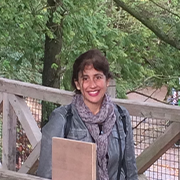
Gabriela Certad
Gabriela Certad is a Medical Doctor from the Universidad Central de Venezuela (UCV) (1992), Caracas, Venezuela. She received her Master of Science (Parasitology) from McGill University (Montreal, Canada) in 1997. The following year, she joined the Parasitology Department of the Faculty of Medicine of UCV as Associate Professor and Hospital Practitioner.
To complete her academic training, she obtained a Diploma in Tropical Medicine from the University of Alabama (USA)/Universidad Cayetano Heredia (Peru) in 2003, and her PhD degree from The University of Lille, France in 2008. From 2010 to 2013, she completed a Post-Doctoral fellow at the Pasteur Institute of Lille. In 2013, she obtained a position of Clinical Research fellow at the Medical Research Department of the Groupement des Hôpitaux de l’Institut Catholique de Lille, France. She obtained Research Direction Habilitation (HDR) in 2014 from the University of Lille 1.
Currently, she is the leader of the group "Cryptosporidium" in the team Ecology and Physiopathology of Intestinal Protozoa (ECOPHIP), at the Pasteur Institute of Lille/Center for Inflammation, Immunity & Infection, focusing her main research activities on the epidemiology, transmission and physiopathology of Cryptosporidium.
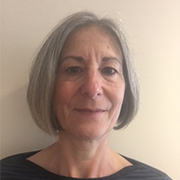
Rachel Chalmers
Rachel Chalmers has been Director of the national Cryptosporidium Reference Unit (Swansea, Public Health Wales) since January 2000, providing the national reference service including laboratory testing and investigation of outbreaks of cryptosporidiosis. She has a background in the food industry, veterinary and environmental microbiology and the surveillance and epidemiology of zoonoses in humans. Current research includes detecting and genotyping protozoa in clinical, food, water and environmental samples, assessing public health risks from different sources, investigating the long-term health effects of infection, developing new methods for detection in food samples and understanding diversity within Cryptosporidium spp. She is an advisor to the WHO in food and waterborne diseases caused by protozoan parasites and is an expert member of ISO working groups for method validation and foodborne parasites.
Rachel has co-authored over 150 scientific papers and articles. In 1998 she was awarded a Winston Churchill Memorial Trust Travelling Fellowship to study Cyclospora in Peru and the US. She led the production of national guidance for the investigation of Cryptosporidium cases linked to swimming pools in 2011. She is an Honorary Departmental Fellow at the Institute of Geography and Earth Sciences, Aberystwyth University, and an Honorary Professor in Swansea Medical School.
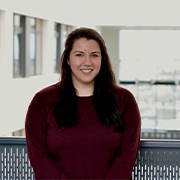
Beatrice Colon
Beatrice Colon completed her PhD in Infectious Diseases at the University of Georgia, USA under the direction of Dennis Kyle in 2018. Her dissertation focused on drug discovery and developing resistance for the pathogenic brain-eating amoebae, Naegleria fowleri. She then began her post doc at the Wellcome Centre for Anti-Infectives Research at the University of Dundee in the Pawlowic lab studying transmission of Cryptosporidium by using proteomics and genetic tools to study the oocyst wall. In this project she has created a proteomics dataset to identify proteins significantly enriched in the oocyst wall. She is using CRISPR/Cas9 to create transgenic Crypto to validate localization of the proteins of interest. Beatrice has also created a transgenic Crypto reporter line, which is used with collaborators at the Drug Discovery Unit in Dundee to identify potent inhibitors in vitro and drug efficacy in vivo in both acute and chronic murine models. Throughout her post-doc she has been an integral part in setting up many of the Crypto specific lab tools that she will discuss further in her talk.
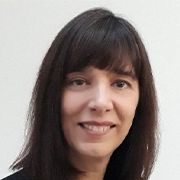
Angharad Davies
Angharad Davies is a professor and honorary consultant medical microbiologist at Swansea University Medical School, and Vice-President of the Royal College of Pathologists.
She qualified in medicine from the University of Cambridge and, after gaining an MRCP, undertook her specialist training in medical microbiology and virology at the Royal Free Hospital, London. She went on to an MRC Clinical Research Training Fellowship at University College London, gaining a PhD in aspects of dormancy in tuberculosis.
Angharad is consultant microbiologist for the Public Health Wales Cryptosporidium Reference Unit and theme lead for infection and immunity on the Swansea University graduate entry medicine course. From 2019–2022, she was Health and Care Research Wales' Specialty Lead for Infection. With the CRU, she has researched the clinical sequelae of cryptosporidiosis and the impact of cryptosporidiosis on severely immunosuppressed children with primary immunodeficiency.
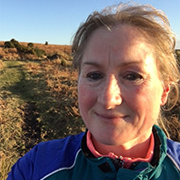
Kristin Elwin
Kristin is a Principal Clinical Scientist at the National Cryptosporidium Reference Unit in Swansea (Public Health Wales). She has a background in environmental and molecular biology, graduating from Swansea University in environmental biology and then a PhD in genetic toxicology. Her main interests lie with the epidemiology, surveillance and phylogenetics of Cryptosporidium and Giardia and the development of improved methods for their detection and characterisation in human, food and environmental samples. She manages the routine genotyping of Cryptosporidium for England and Wales, which she has done since the late 1990’s when she was integral to the initiation of the service. As the quality lead for the Reference Unit, she has the task of converting research methods into accredited laboratory tests. She has taught at two European funded Food Borne Pathogens training schools for molecular methods: in 2017 (Lisbon, Portugal) and 2018 (Riga, Latvia).

Frank Katzer
Dr Frank Katzer leads a research group at the Moredun Research Institute in Scotland, studying protozoan parasites (Cryptosporidium, Toxoplasma, Neospora, Giardia, Sarcocystis and Babesia) of livestock, wildlife and humans. He obtained his D.Phil from the University of York and subsequently worked at the Roslin Institute, the Veterinary Schools of the Universities of Glasgow and Edinburgh and since 2007 he has been working at the Moredun Research Institute. His research area focuses on understanding parasite diversity, transmission dynamics and the development of methods that can be used to detect, speciate and genotype protozoan parasites in animal, environmental and food samples. He also has an interest in developing vaccines for protozoan parasites of veterinary importance. His work aims to develop intervention strategies to stop/reduce the risk of parasite infection for animals and humans.
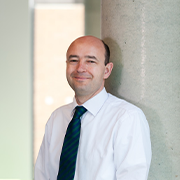
Roberto La Ragione
Roberto graduated in 1995 and then went on to study for a post-graduate degree in veterinary microbiology at the RVC. In 1996, he moved to the government Veterinary Laboratories Agency to undertake a PhD on the pathogenesis of E. coli in poultry. In 2005, Roberto was appointed head of pathogenesis and control at the APHA and in 2010 he was appointed Professor of Veterinary Microbiology and Pathology at the University of Surrey. Roberto gained the FRCPath in 2010 and in 2012 was appointed the Associate Dean for Veterinary Strategy in the School of Veterinary Medicine. In 2014, he was appointed Head of the Department of Pathology and Infectious Diseases and 2019 Deputy Head of School. In 2021, he was appointed Head of the School of Biosciences and Medicine. Roberto is the past president of the EU Med-Vet-Net association, the Chair of the Royal College of Pathologists Veterinary Pathology Specialty Advisory Committee, Chair of the Humanimal Trust, a member of the Houghton Trust and a member of the APHA science Advisory Board. Roberto is an Associate member of the European College of Veterinary Microbiology (AECVM). In 2020, he was awarded an Honorary Associateship of the Royal College of Veterinary Surgeons (HonAssocRCVS).
Roberto’s current research interests focus on AMR and understanding the pathogenesis of zoonotic bacterial pathogens. Roberto has a particular interest in the development of control and intervention strategies, including rapid diagnostics, vaccination, and probiotics for the control of pathogens such as Salmonella, Brachyspira and E. coli in food-producing animals. Roberto has published over 170 peer-reviewed papers in the area of microbiology.
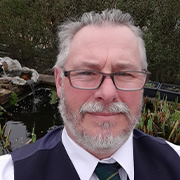
Rob Johnston
Rob Johnston qualified as an Environmental Health Officer in 1987. After training with Wirral Borough Council, his early career involved working within Environmental Health Services for three Local Authorities: Plymouth City Council, Nottingham City Council and Rushcliffe Borough Council. In 2002, he joined the Communicable Diseases Team, part of Nottingham Health Authority, supporting the team involved in coordinating, advising on, and investigating food, waterborne and other infectious disease cases and incidents.
Rob has continued to work for UKHSA and its antecedent organisations through several reconfigurations over 20 years. As Food, Water and Environmental Scientist (Out-posted), he provides advice and support to UKHSA Health Protection Teams, local authorities, the Health and Safety Executive, the NHS and other organisations on food and water borne organisms of public health significance, the management and control of such organisms and sampling practices and procedures. He has worked on sampling activities throughout England and further afield, working with the Liverpool School of Tropical Medicine in Africa. He has delivered training through UKHSA and ECDC to colleagues in the UK and across Europe.

Adrienne Mackintosh
Adrienne Mackintosh BVMS, Cert BCP, MVPH MRCVS moved to West Wales after graduating in 2004 from the University of Glasgow Vet School. She spent five years in a mixed and latterly large animal practice specialising in bull and dairy cow fertility, and completed a certificate in beef cattle production.
In 2009, Adrienne joined the then Veterinary Laboratories Agency (now APHA) as a Veterinary Investigation Officer (VIO) and shortly after became a member of the Avian Expert Group. Further formal study included a Masters in Veterinary Public Health.
In addition to the day to day job of diagnostic post-mortems, disease investigations, and surveillance, Adrienne has responsibilities and interests in Salmonella control, particularly in poultry and non-statutory zoonoses investigation and control.
Adrienne’s blog for APHA a day in the life of a VIO gives a flavor of the diverse role of the VIO.
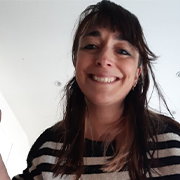
Caoimhe McKerr
Caoimhe is a healthcare epidemiologist working for Public Health Wales supporting outbreak investigation, surveillance of healthcare acquired infections, and antibiotic resistance. Caoimhe’s specialist areas include gastrointestinal infections, particularly Cryptosporidium, and the integration and use of genomics data in routine surveillance. Caoimhe has a particular interest in public engagement work, and also works as an honorary lecturer and course tutor at the University of the Highlands and Islands.
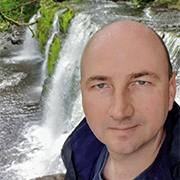
Guy Robinson
Guy is a Principal Clinical Scientist at the National Cryptosporidium Reference Unit in Swansea, based there since 2001, and is an Honorary Senior Lecturer at Swansea University Medical School. His academic background includes a degree in Biomedical Sciences, a Masters in Veterinary Parasitology from the Liverpool School of Tropical Medicine, and a PhD from the College of Medicine in Cardiff on the public health significance of Cryptosporidium in the environment. He has co-authored many scientific publications on various aspects of Cryptosporidium, Giardia and Cyclospora, including parasitological techniques to detect and characterise those of medical, veterinary and environmental importance. Guy has consulted on various projects worldwide, for example setting up a water-testing laboratory in Puerto Rico for the study of protozoan parasites in rural water supplies, and is actively involved on committees for the CryptoDB genome resource database and the development of an ISO standard to detect Cyclospora in food produce. Recent research interests include molecular epidemiology of cryptosporidiosis, whole genome sequencing for improved characterisation of this problematic protozoan and the development of new genotyping methods.
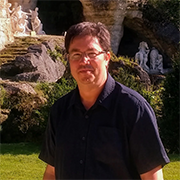
Kevin Tyler
Kevin Tyler runs a cosmopolitan, multidisciplinary group taking a genomics-led approach to tackling problems associated with a variety of protozoan parasite diseases. His focus has been on water, vector borne, and often zoonotic diseases (Cryptosporidiosis, Giardiasis, Trichomonosis, Chagas Disease and Leishmaniasis) and he collaborates on a variety of networks worldwide, from Europe, to South America, to Africa and the Middle East. His interest is focused on achieving an understanding of parasite virulence, how and why new virulent lineages emerge and how they can be diagnosed and managed most effectively. He has also been a proponent and pioneer of Open Access publication and is a modernizer of effective communication and publication for research into communicable diseases. He was Founder Editor of Kinetoplastid Biology and Disease, and subsequently founder and Editor of Parasites and Vectors and its popular Bugbitten community blog. He is currently Editor-in-Chief of Virulence.
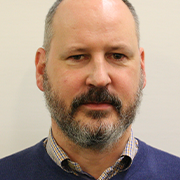
Richard Elson (UK Health Security Agency, UK)
Richard qualified as an Environmental Health Officer in 1990 and has worked in the field of public health and infectious diseases both at local and national government level for over twenty-five years.
In 1995, he was the Regional Health Inspector for the Kavango Region in the Republic of Namibia and was responsible for all aspects of the environmental health service, including malaria control and provision of basic water and sanitation improvements. Returning to the UK local government in 1997, he specialised in food safety regulation before undertaking an MSc Control of Infectious Diseases at the London School of Hygiene and Tropical Medicine, graduating in 2000.
Richard then joined the newly formed Food Standards Agency before joining the Health Protection Agency (later Public Health England and now the UKHSA) in 2002. He is usually responsible for the national surveillance of gastrointestinal infections and outbreak investigation, but has worked full time on the national COVID-19 response since early 2020.
Richard has authored or co-authored peer reviewed papers, book chapters and articles on subjects ranging from communicable disease administration and law to the use of molecular typing methods for disease surveillance. I’m currently approaching completion of a PhD using spatio-temporal methods to help understand local drivers for STEC O157 in England.
Registration fees
Online registration for the What’s New in Cryptosporidium? meeting is now open. Microbiology Society members get heavily subsidised registration fees for focused meetings, annual conference and other society events. Join now to enjoy these discounts and many other opportunities that are designed for microbiologists at all stages of their career.
Non-Residential rates
|
|
Full rate |
|
Full and Full concessionary member |
£320 |
|
Student member |
£250 |
|
Non member |
£410 |
Residential rates for one night: Monday 4 July
|
|
Full rate |
|
Full and Full concessionary member |
£375 |
|
Student member |
£305 |
|
Non member |
£465 |
Residential rates for two nights: Sunday 3 July and Monday 4 July
|
|
Full rate |
|
Full and Full concessionary member |
£426 |
|
Student member |
£356 |
|
Non member |
£516 |
All residential rates include accommodation at Swansea University Bay Campus.
What’s included in your registration fee?
- Admission to all scientific sessions
- Access to scientific poster sessions
- Lunch and break-time refreshments
- Tickets for the drinks reception
- Ticket to the meeting dinner on Monday evening
- A delegate bag and printed programme
- Electronic certificate of attendance
COVID-19 Mitigations
As part of the preparations for returning to delivering in-person events, Microbiology Society Council members and members of the Virus Division have worked with Society staff to develop a framework of mitigations for the Society to apply to all of its events throughout 2022, in order to ensure that these are as COVID-secure as possible.
Implementation of this framework is a shared responsibility; shared between the Society, the venues we use for our events, and all potential attendees. Attendance at any of our events is a personal choice, but it will be incumbent on all of us to deliver these mitigations in order for us to keep all delegates and staff as safe as we can.
The framework covers the following five areas.
The following mitigations will be implemented for all those attending a Focused Meeting in 2022. The Society staff will continue to consult with the organising committee in the lead up to the event and these mitigations will be kept under review and may be amended to ensure they remain appropriate as circumstances change.
Mitigation area
Vaccines
All attendees are required to be fully vaccinated with an approved vaccine against COVID-19 to attend a Focused Meeting in 2022. For many individuals, this will mean a primary course and booster vaccine, and with the booster administered at least 14 days before the meeting. However, if you do not meet this requirement or if you have any concerns around your vaccination status, please get in touch with us to discuss it further by emailing [email protected]
You can find further information on vaccines on the World Health Organization (WHO) COVID-19 vaccine advice page, which includes a list of vaccines that have been approved for use against COVID-19.
Ventilation
Best efforts will be made to promote the circulation of fresh air into each Focused Meeting venue. This will include use of air conditioning, if available at the meeting venue, or opening of doors and windows during appropriate intervals in the event programme if possible.
Masks
FFP3 masks will be provided to all individuals attending a Focused Meeting in 2022 and everyone will be expected to wear them inside the meeting venue, except when eating or drinking and except for those that have medical exemptions.
Testing
Attendees will be provided with LFT devices and are expected to test themselves daily before entering the meeting venue.
Spacing
All attendees are reminded to adhere to social distancing where possible, particularly during communal activities such as lunch and poster sessions.
Monday afternoon - half day and evening
For those delegates who only wish to attend the meeting on Monday 4 July afternoon, a half-day and evening rate is available to both Microbiology Society members and non-members.
|
Monday afternoon - half day (Including Drinks Reception and Diamond Jubilee lecture) |
Monday afternoon – half day (Including Drinks Reception, Diamond Jubilee lecture and Dinner) |
|
£70 |
£100 |
Registration confirmation
Upon registration you should receive an automated confirmation email. Please contact [email protected] if after 24 hours this has not been received.
Payment Information
All registration fees must be paid in full before arrival at the conference. Any outstanding registration fees must be paid before admittance will be granted to the conference.
Visa applications
If you require a letter of invitation to support a visa application, we will be happy to supply this after we have received full payment.
It is the policy of the Microbiology Society not to supply an invitation letter to any delegate that has not registered to attend the meeting and paid the registration fees in full.
Requests for invitation letters should be sent to [email protected] after registration has been completed.
Please note that all meeting delegates are responsible for their own travel and visa arrangements.
Cancellations
We are aware of ongoing uncertainty around event attendance as the pandemic continues. In order to give delegates the most confidence and flexibility, we will refund all registration fees in full if you cancel your booking, for whatever reason, at any time in the lead up to the event. If you wish to cancel your booking and request a refund before the event, please email [email protected]
Abstract submissions for this meeting are now closed.
Oral presenters
We have produced a guide on how to give an oral presentation, which can be downloaded below:
Poster presenters
- Poster size: A0 size 841mm(w) x 1189mm(h) - your poster must not exceed these measurements.
- Poster layout: MUST BE portrait orientation.
- Posters will be displayed on poster boards measuring 1m(w) x 2m(h), one to a side.
- Posters can ONLY be fixed by Velcro (which will be provided at the meeting).
Journal of Medical Microbiology Poster Prize
Journal of Medical Microbiology is pleased to provide a best poster prize to a scientific poster at this meeting. The winner selected by members of the organising committee will win a cash prize and the opportunity to be featured on the Microbe Post. All posters displayed at the meeting are automatically entered for the prize.
British Society for Parasitology Speaker Award
The British Society for Parasitology (BSP) is pleased to provide the ‘British Society for Parasitology Speaker Award’ to a scientific oral at the What’s New in Cryptosporidium? meeting. The winner, selected by invited speaker, Kevin Tyler (Honorary General Secretary of BSP) and members of the organising committee, will win a cash prize and an invited speaker place to the next BSP meeting in Edinburgh 2023. All offered oral presentations at the meeting are automatically entered for the prize.
The meeting takes place at the School of Management building at the Bay Campus of Swansea University. The newly built £450m campus, opened in 2018, has state-of-the-art facilities and features an outstanding glass atrium and purpose-built modern meeting rooms and lecture theatres. The campus backs onto the sandy beach and the beautiful sweep of Swansea Bay.
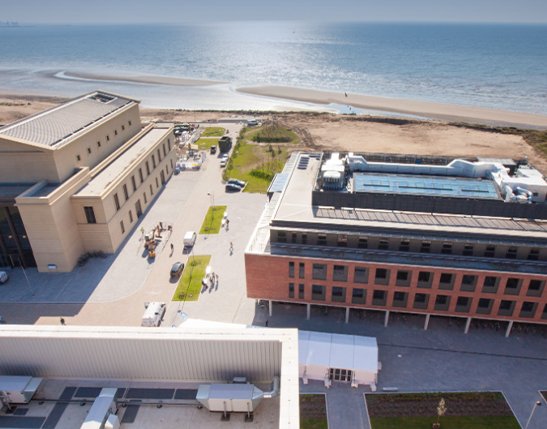
Venue address
Swansea University Bay Campus
School of Management
Fabian Way
Skewen
Swansea
SA1 8EN
Venue accessibility
There is a level access route from the pavement outside the School of Management building to the main entrance and there are lifts to all floors.
Sustainability
Swansea University is a leading, sustainable university with ambitions to help drive forward sustainable development both in the UK and further afield. It is currently ranked 10th in the People & Planet University League and tops the list of Universities in Wales. You can read about Swansea University’s Sustainability Policy, Strategy and Objectives and more online here.
Accommodation
All residential registration rates include bed and breakfast in Bay Campus accommodation. This includes accommodation for the night of Monday 4 July 2022.
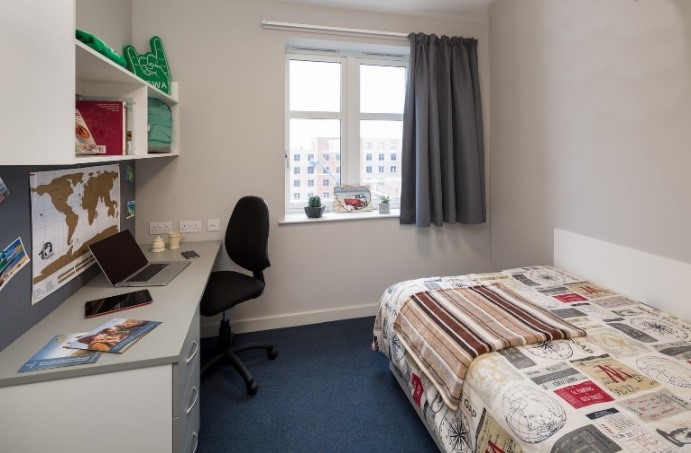
Directions
You can view a map of Bay Campus here featuring detailed directions and useful information to find the venue and navigate your way round the campus.
By Road
Travelling west on the M4 leave the motorway at junction 42 and follow signs for Swansea on the A483 (Fabian Way). The Bay Campus is situated to the left-hand side of Fabian Way and the main entrance is controlled by traffic lights. There is a Visitors’ Car Park immediately to the left of the main entrance. There is a large Park and Ride facility located at Fabian Way, which is a short distance from the Bay Campus.
By Bicycle
Swansea University is a cycle-friendly university with plenty of bike parking on campus.
By Bus
Bus travel to and from Swansea University is reliable, affordable and sustainable. With regular services between campuses and routes covering the majority of the city, it's easy to get about.
Find out about routes, prices and tickets here
Sustainability
Carbon footprint offsetting
Exhibition and sponsorship opportunities are available for this meeting.
Please download our exhibitor and sponsor pack to view our options, which suit varying budgets and help create the opportunities you need to connect with new and existing customers. If you have any questions about the packages, please email [email protected].
Sponsors
Society Conference Grants are available to support eligible members wishing to attend this Focused Meeting. Applications for this scheme are now closed.
We are aware of ongoing uncertainty around event attendance as the pandemic continues. To find out more about our grant refund policies, please visit our Grant Rules page.
Members who are ineligible for the Society Conference Grant should apply to the Travel Grant scheme for support. Applications for events taking place between 1 July–30 September 2022 will open in April and close on 1 June 2022.
Please contact [email protected] for any questions.

